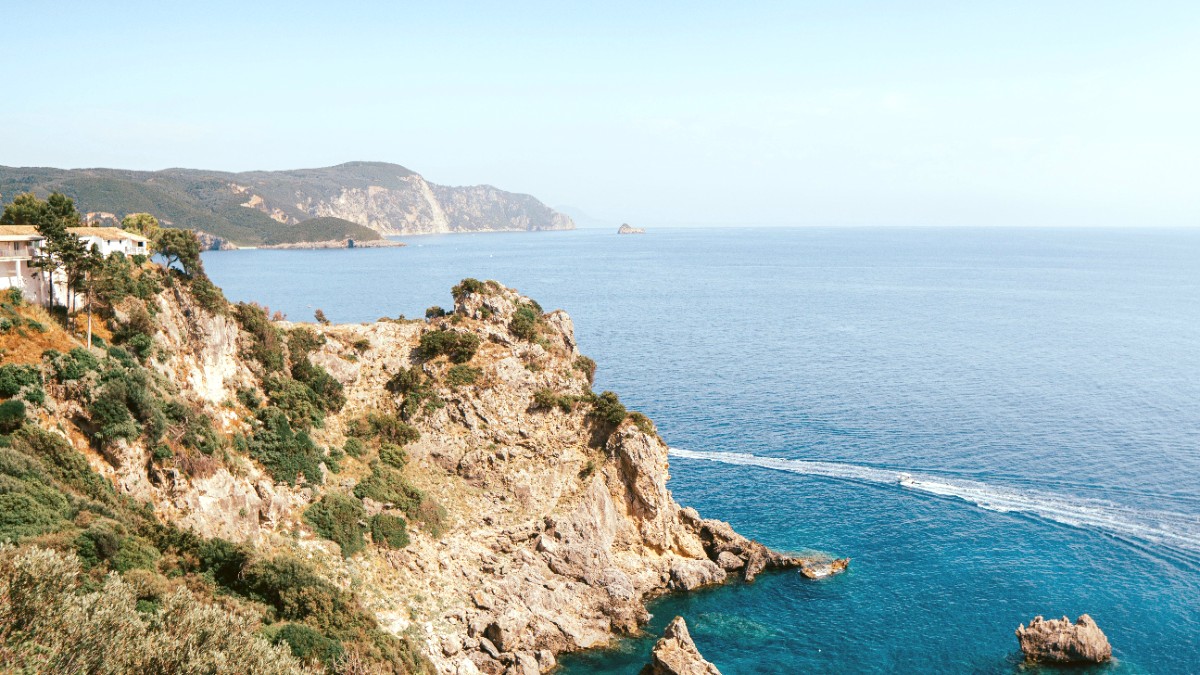
Ionian Islands, Greece
Korission Lagoon in the south and the northern coastal areas are designated Natura 2000 sites. These areas shield diverse ecosystems and serve as habitats for migratory bird populations. Respect all regulations when visiting these sensitive environments.
Corfu's vast olive groves hold an important place in its ecosystem and economy. Support sustainable olive oil producers who prioritize environmentally conscious practices.
Plastic waste presents a significant environmental challenge. Reduce consumption of single-use plastics by carrying a Reusable water bottle and a Reusable shopping bag. Recycling bins appear more common in Corfu Town and some larger villages. Water resources experience strain, especially during peak tourist season. Be mindful of your water usage, take shorter showers, turn off taps when not in use, and report any leaks.
Your travel choices shape the island's future sustainability.
Consider choosing airlines that offer carbon offset programs for your flights. Alternatively, support carbon offset initiatives independently to mitigate the environmental footprint of your travel.
Seek hotels or tour operators with environmental certifications (e.g., Green , Blue Flag for beaches) or those that promote sustainable practices. These practices include energy efficiency, waste reduction, local sourcing of food, and support for conservation efforts.
Support initiatives to preserve Corfu's unique Venetian and traditional architecture, specifically in the Old Town. Respect local traditions, especially during religious festivals and ceremonies.
Learning a few basic Greek phrases shows respect. Be polite and patient; the pace of life in Corfu can exhibit a slower rhythm—embrace "siga siga" (slowly, slowly). Dress modestly when visiting religious sites. Avoid loud behavior in residential areas, especially at night, out of consideration for local residents.
Always ask for permission before photographing individuals, especially children. Be discreet when taking photos in religious sites and avoid using flash in places of worship. Respect private property; do not trespass for a photo opportunity.
Support conservationDress appropriately, with shoulders and knees covered. Maintain a respectful silence inside churches and monasteries. Do not disrupt services or prayers. Smoking remains prohibited inside religious buildings.
Find local experiencesEat at traditional tavernas, utilize local guides, shop at local markets, and book services directly with local operators where possible. These actions deliver direct economic backing to the island's residents.
Your choices as a traveler directly benefit local communities.
Seek out and support small, locally-owned businesses, guesthouses, and tavernas, notably in less-visited villages. This distributes tourism benefits more widely. Purchase local products directly from producers or small shops, including olive oil, kumquat products, pottery, and olive wood carvings. This approach makes certain a greater portion of the revenue stays within the local community. Avoid mass-produced souvenirs often imported from outside Greece.
Do not engage in activities that exploit animals (e.g., unethical animal rides if available, though not common on Corfu). Be aware of human rights issues. While not a prominent concern for tourists in Corfu, staying informed is always a responsible practice.
If a donation is desired, consider contributing to established local charities or environmental organizations rather than individual begging. This directs funds effectively for the community's benefit.
Research local NGOs or non-profits that focus on environmental protection or social welfare.
Organizations working directly on island conservation or education often make strong choices.
Unsolicited individual donations may not have the desired positive impact.
Staying informed and choosing ethical interactions maintains a positive experience for both visitors and local communities.
Every choice made as a traveler leaves a footprint. Strive for a positive one.